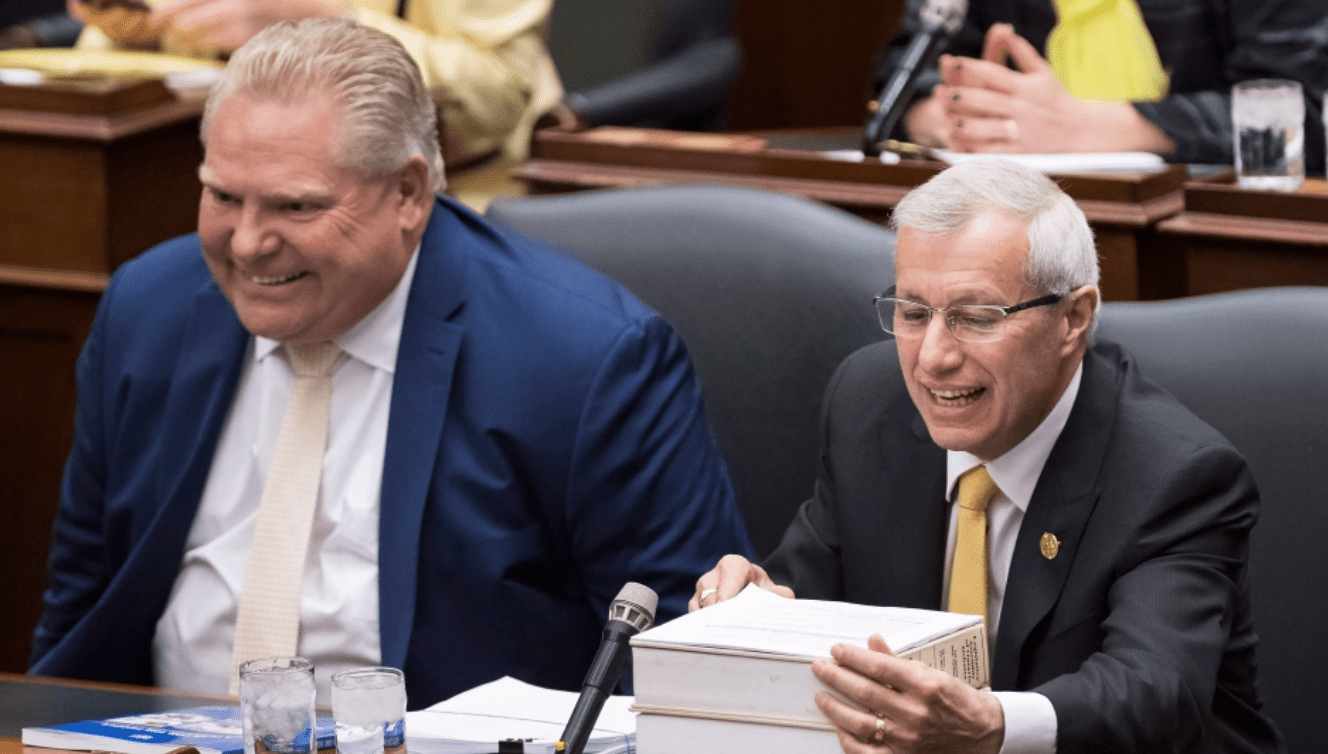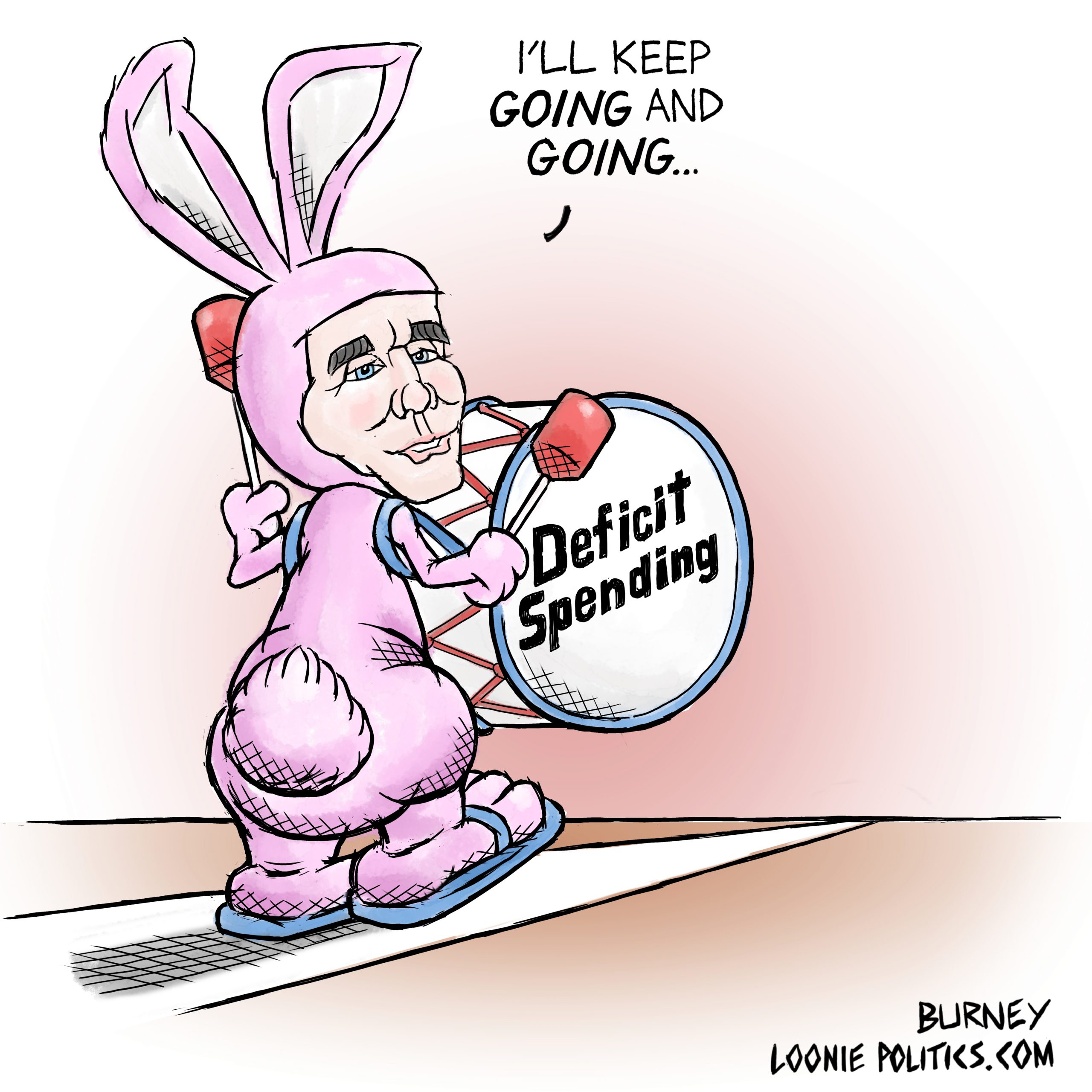"We will make Ontario once again the engine of Canada."
—Doug Ford during his election victory speech, 7 June 2018
"I'm not going to have a bunch of extremists [in] downtown Toronto deciding what the people of the north are going to do."
—Doug Ford during an election debate, 11 May 2018
"Hamilton has been ignored. It has been run by the NDP — the socialists — who destroyed the city for years."
—Doug Ford during question period, 5 November 2019
It would be complimentary to refer to A Plan for Ontario as a political platform. Short in stature and wanting in detail, the Progressive Conservatives' list of election promises lacked comprehensive costing —ironic from a group that claimed to be "the only party that's fiscally responsible." The document's brevity rivalled the British Brexit party's recent minuscule "election contract," widely ridiculed for its lack of specifics.
I read through the entirety of A Plan for Ontario, but was left perplexed. Although I noticed repeated promises to reinvigorate Ontario's economy, nowhere did I spot a commitment to undermine the province's most left-leaning cities. I failed to observe any pledges to orchestrate vindictive favouritism against urban centres, or wage petty retribution against regions that didn't vote Progressive Conservative.
Yet, here we are.
Not to be outdone by a predecessor who forced a Toronto megacity amalgamation against the wishes of more than three-quarters of local residents, and who burned $40 million by filling in a tunnel already dug for the proposed Eglinton subway line, Premier Doug Ford is determined to steer the Progressive Conservatives to unprecedented levels of spitefulness against Ontario's economic centres.
Ford initially wanted revenge against his former colleagues at Toronto City Hall. Shortly after coming to power, the Province unilaterally halved the number of city councillors and re-drew the wards map without any public consultation, tossing out years of work on a boundary review that had recently been completed. When this unexpected reform was initially struck down by a judge, Ford threatened to invoke the notwithstanding clause to temporarily override sections of the Canadian Charter of Rights and Freedom for the first time in Ontario's history.
Ford then ripped up Toronto's transit plan and announced his own scheme instead in April, to the bewilderment of Toronto City Council. This was another unilateral action that lacked public consultation and hadn't appeared in A Plan for Ontario. The Sheppard East LRT was cancelled, with a more expensive subway extension planned instead, despite transportation planners arguing that ridership numbers didn't justify the more expensive subway option. Costs of the planned Relief Line (now rebranded as the "Ontario Line") and Eglinton West LRT both ballooned by billions of dollars — this from a political party that previously cancelled an Eglinton subway and claims to be fiscally prudent. The discarded Toronto transit plan had involved years of design work and costed millions of dollars, now down the drain.
That same month, the Province announced $1 billion would be cut from the budget of Toronto Public Health as of 2020, which will affect programs such as food safety and water-quality inspections, communicable disease surveillance and immunization controls.
Then another curveball in June: the Province unilaterally replaced Toronto's midtown and downtown development plans. Again, to the surprise of Toronto City Council. Again, without any public consultation. Again, despite not appearing in A Plan for Ontario.
Critics of Ford assumed these destructive actions would largely be confined to targeting the city he once served as a councillor. But this week we learned that Toronto wouldn't be the only urban centre to feel Ford's wrath.
Enter the City of Hamilton.
On Monday, Ford's government announced it had unilaterally cancelled Hamilton's planned LRT line. In an attempt to sway public sentiment against the doomed project, the Province cited spiralling costs, releasing an estimated figure of $5.6 billion. But this amount disingenuously included operating and maintenance costs for 30 years; the actual capital cost estimate was only half as much.
However, even that capital cost estimate of $2.8 billion appears dubious, produced by an "expert consultant's report" that the Province not only refuses to make public, but won't name the author of. Hamilton mayor Fred Eisenberger insists the figure is made-up, ballooned to help sink the project. And the actual capital cost of the project wouldn't have been known until bids were received from three consortiums, yet the entire project was cancelled mere weeks before bids were due.
The surprise decision is yet another example of tremendous financial waste from the Progressive Conservatives. A decade of work had already been invested in the project. Metrolinx had spent $165 million to purchase 65 properties for the proposed LRT route. Several development companies had already begun dozens of projects along the corridor under the assumption that the LRT would be built.
Even Hamilton's business community has been scathing of the Province's unexpected, unilateral cancellation.
"It's going to have a huge impact on the investment climate here," Keanin Loomis, president and CEO of Hamilton Chamber of Commerce, told the CBC.
And rather than reaching out to the federal government for assistance with funding, Ford's team simply pulled the plug on the project.
Curiously, the Province commissioned a third-party review only of the Hamilton LRT project. As Raise the Hammer editor Ryan McGreal noted on Thursday, Hamilton is being treated differently than all other Ontario communities receiving rapid transit funding.
Is it possible that the decision is largely political? Could Doug Ford be treating Hamilton with the same vindictiveness as he is Toronto?
Cherise Burda, executive director of Ryerson University's City Building Institute, told the Toronto Star that costs of the Scarborough subway extension keep rising, yet that project has not been cancelled, or even received a third-party review.
Likewise, the Hurontario LRT project, planned for Mississauga and southern Brampton, has not been put under close financial scrutiny, despite having a longer route than the cancelled Hamilton LRT project.
Perhaps not coincidentally, the cancelled Hamilton LRT route would have been located entirely in ridings won by the NDP during the 2018 provincial election, while the unfettered Hurontario LRT and Scarborough subway extension projects are both planned for ridings that voted Progressive Conservative.
This is a government of chaos, not business. Despite peddling catchphrases about making Ontario "open for business," it has instead been hostile to the province's economic engines. It thrives on uncertainty, not data-based decision making, to the horror of investors everywhere. It's more interested in settling one man's personal political scores than improving the lives of residents.
But we already knew this.
What we discovered this week was that if your provincial district didn't vote Progressive Conservative during a hard-change election that pivoted away from the Liberals, and if your community doesn't appear to be a marginal riding for the 2022 election, you're as good as dead to Doug Ford.
One of the most orange-tinted cities in Ontario learned the hard way that voting the "wrong" way has consequences when goons are in power.
Windsor, London, eastern Niagara, northern Brampton, northern Ontario and several other pockets dotted across the province had best watch their back.
Photo Credit: Toronto Star










